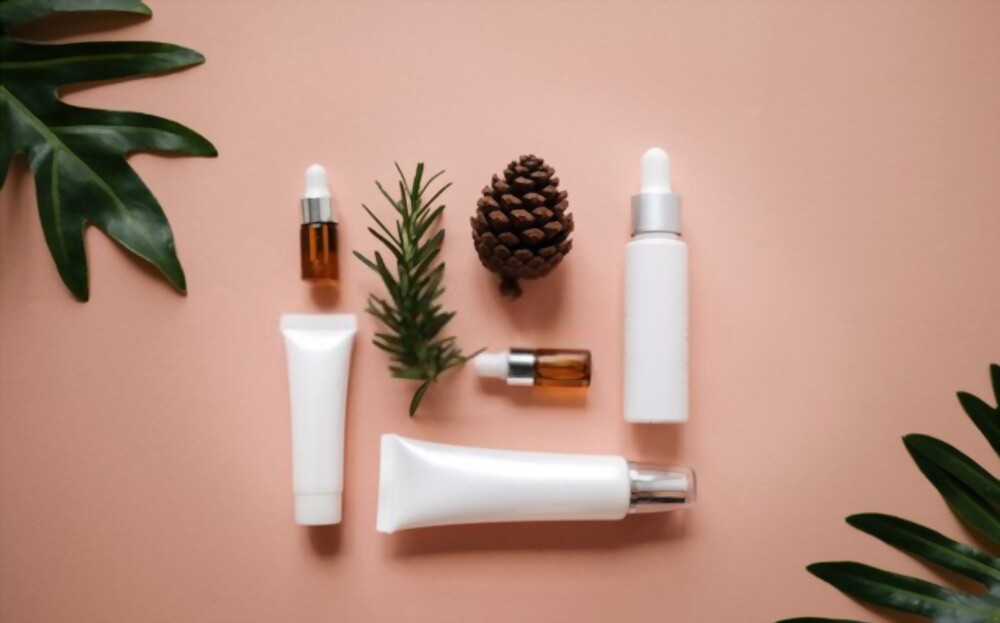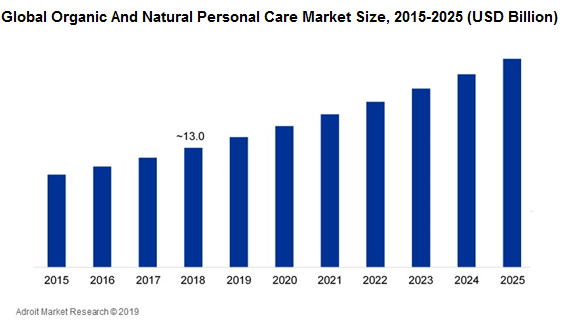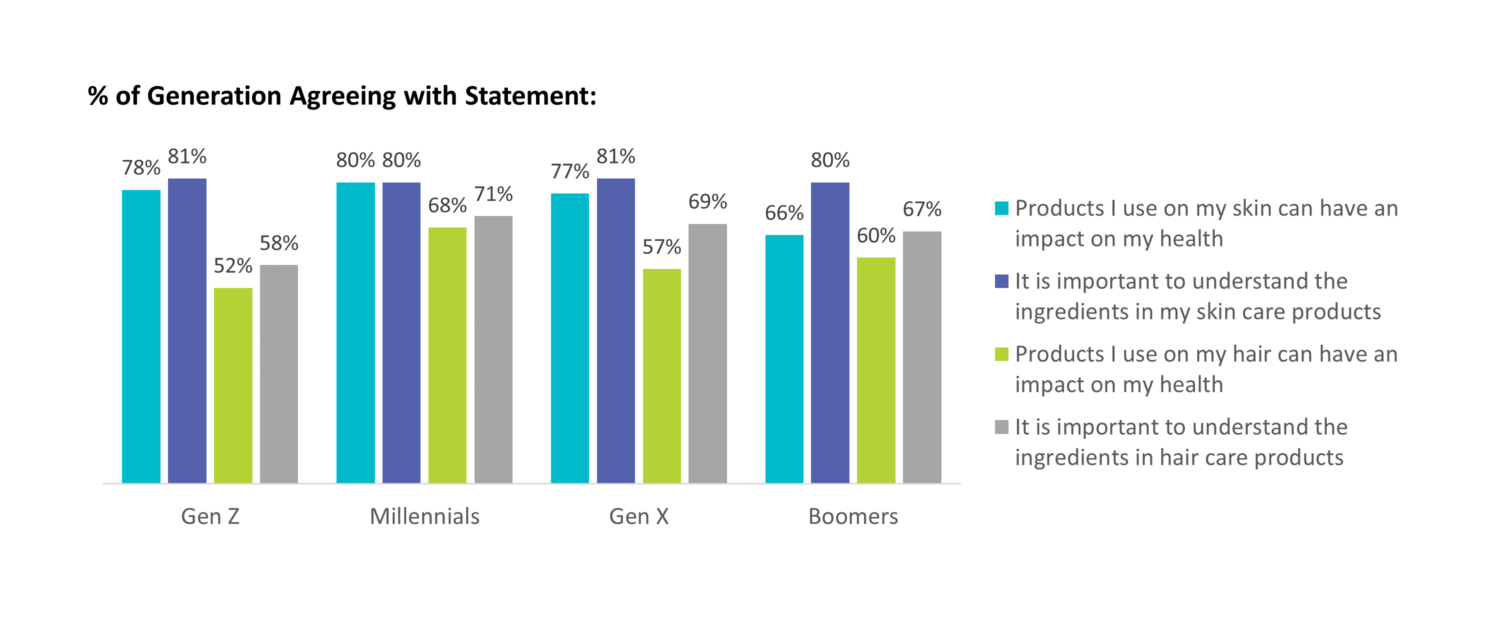‘Organic’ A Trend Thriving In Skincare Products – Know Why


The most powerful and safe skincare and beauty products are no more reliable on synthetic chemicals. Customers have a keen interest to know about the product making and its effects on health and surroundings. Skincare items come in direct contact with skin, so chances of adverse effects are high.
‘Organic’ words have become trendy across the globe. Now you must be wondering why suddenly people’s inclination towards organic trends are increasing. This article will discuss every corner of the industry boosting organic trends in the beauty business.
The global industry of organic skincare has been proliferating in recent years. Grand View Research declared that the natural skincare market was probably going to gain $15.98 billion by 2020 and $48.04 billion by 2025, as interest in natural skincare, haircare, and natural cosmetics draws purchasers to search for organic and natural product brands.
We all witnessed nature’s unfavorable conditions, and with environmental awareness, Our buying behaviors shifted to eco-friendly products. A large number of the present buyers are requesting more natural ingredients in the items they buy and they are equally eager to know where their items come from and what their fixings are.


Table of Contents
Clean Beauty Trend
Different people relate different things with ‘Clean,’ which means there’s no authority set definition for it. Although, every beauty business has its own standards of the perfect beauty trends. There are a few distinct things that brands can mean when they talk about clean beauty items like organic ingredients, no chemicals, no toxic substances, vegan products, etc. are instances of clean beauty.
Further, natural skincare trends, well-being, health, social, ethical, clean beauty, etc. intertwines with our responsibility towards the environment. With the adverse impacts of covid 19, consumers are becoming conscious and worried about their wellbeing and thinking over the products they use in their daily life.
Traces of clean beauty got popular among millennials even before the corona epidemic. The trends of clean beauty emerged from 2017 and were expected to grow by 42% in 2018 and will soon surpass $22 billion by 2024.
Pandemic Booms Organic DIY Trend
Do-It-Yourself skincare includes all aspects of organic and natural personal care. In recent years people are becoming more conscious of natural beauty. Zero side effects are the pivotal factor in choosing organic methods of skincare. Social media has played a vast role in growing the organic trends in the market. Beauty influencers promoted home beauty tactics through creative video tutorials.
Experts shared easy-to-follow DIY hacks for organic skincare routines. People choose to optimize the free time of lockdown by prioritizing personal care. In pandemics, home remedies became more convenient.
Also, the digital skincare tools market boomed in lockdown. Modern beauty tools like skin tightening machines were considered a boon in times of limited or no access to shops. No more bookings or appointments are required for skin treatments. One can easily undergo skin treatment with at-home machines and get powerful results.
Aspects Of Choosing Natural Over Artificial
People have started adopting organic ways to benefit their bodies in all ways. The main reason behind preferring natural items over synthetic artificial items is that beauty products have direct impacts on health conditions.
Environment friendly
Basically, normal skincare items are far more environmentally friendly than synthetic ones. Chemical-driven products can possibly hurt flora and fauna with which they come into indirect contact.
Besides, the process related to assembling conventional skincare items put a lot of strain on the natural surroundings. As specific substances like aluminum, lead, and so forth require mining and it releases a lot of pollutants, harming nature. Eventually results in a negative carbon impression on the climate.
Normal skincare items skip the utilization of such fixings, thus would not require mining. Also, in light of the fact that it utilizes just regular fixings, they do not harm natural surroundings, plants, and creatures in any way.
Fewer Risks Of Side Effects
Organic skin care items are a lot more secure. This is on the grounds that the fixings include organic items and are a lot more secure compared to those inclusive of toxic chemicals. Obviously, when any product is applied to the skin, the fixings it includes are gradually absorbed by the skin pores, reach the circulation system and directly affect the body.
So, by utilizing a natural skincare item, you are basically staying away from all regrettable wellbeing impacts. This will never make you regret using it.
Animal-Friendly
The actual number of beauty companies testing their items on creatures would shock you. It is surprising to know that around 5,00,000 creatures have presently experimented worldwide.
Fortunately, organic beauty item producers are not testing their items on animals and, truth to be told, never really hurting other living creatures. Accordingly, such products are more animal-friendly and more compassionate than a large number of cosmetic brands that are being cruel to animals.
Surging Towards Eco-Friendly Lifestyle
A global survey indicated a rise in the number of consumers preferring to pay a premium amount for items that are eco-friendly. Likewise, the “organic” trend growth is staggering in the beauty industry.


People have known about the delayed impacts of using chemical-driven beauty products compared to those organic items they are as of now deciding for a regular skincare routine. Products that exclude harmful ingredients like parabens, toxic sulfates, phthalates, paraffin, diethanolamine (DEA), and so forth are in demand. Beauty experts predicted organic skincare market development by 2025.
The Bottom Line
Customers are driving change by purchasing organic beauty products that are exclusive of chemicals that worry them. Organic, sustainable, and plant-based products have been a developing trend in the beauty sector.









